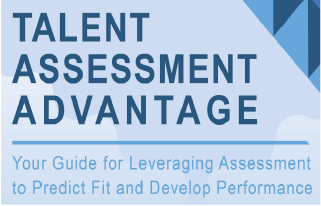Who “owns” an employee?
Is it the business leader who the employee reports to (their boss for lack of a better term)?
Or could it be that Human Resources “owns” the employee?
I was listening to a presentation that Josh Bersin was making at the recent Fuel50 Experience conference about career mobility, and Josh asked this question.
In his presentation (click here for a video), Josh talked about a past conversation that he had with a CHRO, where she told him about the time that she said her leadership team that they do not “own” their people, she does (actually the HR function). The CHRO said that her executive leaders have to look at their people as corporate assets that the company will need to deploy:
- in the best functional roles
- in the most suitable functional area
- to deliver the highest return to the company
This philosophy does not allow for senior leaders to hoard their employees for the personal gain of their business unit. It promotes a freer talent flow within the company.
Josh Bersin boldly predicted that this would be the business model of the future. This new model places a higher degree of responsibility for employee development with managers and supervisors. Employees can no longer just be seen as tools to help the business reach its business objectives.
This new mindset begins to put some real weight behind the tired phrase that “Our People Are Our Greatest Asset.”
Bersin says that growth, development, and mobility are now going to be the management philosophy of the future. This new philosophy will turn the traditional approaches of performance management and succession planning upside down.
- Management structures are going to become less formal and more fluid.
- Talent mobility will become more frequent as the organizational silos are removed.
- Career progression and succession planning will be more about moving the right people to the right projects and teams. There will be less moving upward via a traditional hierarchy and more strategic placement of people where they can have the most significant impact.
Is this new talent mobility philosophy just theory, or is it making its way into organizations?
Bersin, in his Fuel50 address said that 35% of the enterprise-level companies that he surveyed while still at Deloitte now have a more fluid, networked environment where their employees can move into opportunities that span across the organization. Bersin cautions that this mobility is still not close to reaching its potential, but change is happening.
All of the changes that Josh Bersin outlines are moving people management into a talent marketplace, where project teams reach out to the open talent pool within an organization to find the best people.
- This new, more fluid structure will not require the approval of the employee’s manager to onboard new people.
- The organization will become more matrixed and less defined by function.
- Leadership will be about developing your people and less about advancing the objectives of your functional area.
I am sure that when you read this, you will think that this is futuristic and consultant-speak. For a lot of companies, this will be futuristic and not applicable. For the Fortune 1000 companies though, this talent management trend is happening or fast approaching.
As the world of work moves more and more to teams, the organization will need to create a continuous process flow of high-functioning teams that can quickly deliver business outcomes., after completion of the project. the team members will move on to the next project that can best leverage their talents.
In a fast-moving team-based environment like this, the traditional functional silo may not be able to provide the agility and speed to meet the demands of the company.
Which leads back to the question – who will “own” the employee in the future? The case can be made that Human Resources will be the strategists and implementers for the new talent marketplace.





